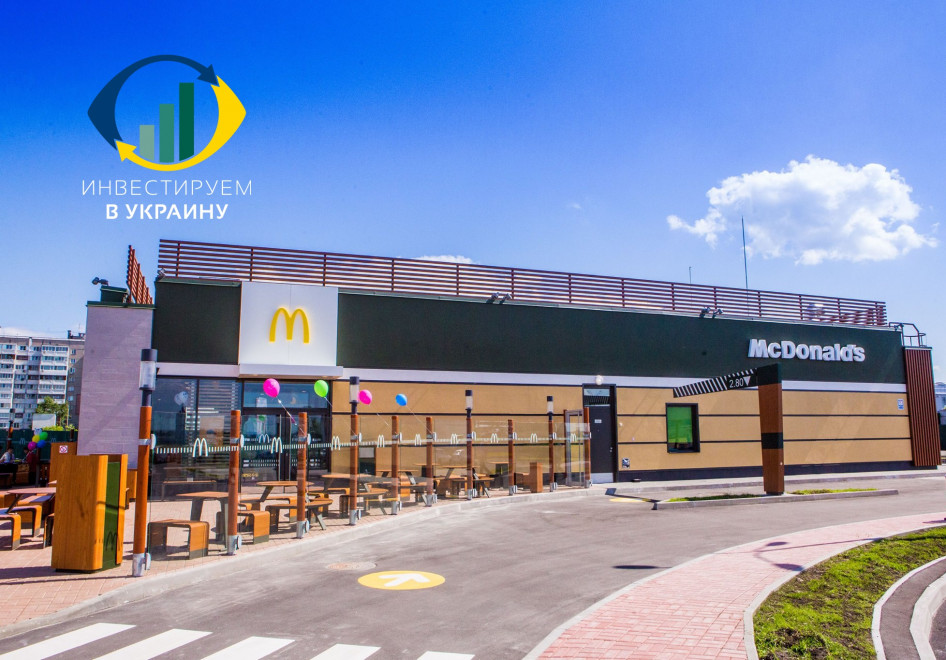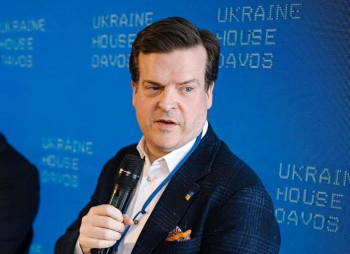Corporate profile
Company name: McDonald's Corporation - https://www.mcdonalds.com
Representation in Ukraine: McDonald's Ukraine Ltd. - https://www.mcdonalds.ua
Sector: fast food restaurant chain
Date of incorporation:
- McDonald's: May 15, 1940 / Richard and Maurice McDonald
- McDonald's Corporation: April 15, 1955 / Ray Kroc
Headquarters: USA, Chicago, Oak Brook
McDonald's Global Performance Indicators (2016):
- Net asset value: $ 31.023 billion
- Turnover: $ 24.622 billion
- Net income: $ 4.69 billion
- Number of restaurants: more than 36 900 restaurants in more than 120 countries
- Number of employees in the world - 375 000
McDonald's & M&A:
1998: Chipotle (investment)
1999: Donato's Pizza (acquisition)
2000: Boston Market (acquisition)
2003: Donato's Pizza (divestment)
2005: Redbox (sale to Coinstar (now Outerwall)
2006: Chipotle (divestment by IPO)
2007: Boston Market (sale to private equity fund Sun Capital)
2009: Redbox (sale to Coinstar)
2012: Restaurant Technology Services (sale to Xerox)
2017: Sale of the Chinese division of McDonald's consortium of investors Grand Foods (CITIC Securities and Carlyle Group)
McDonald's in Ukraine:
- Parent company: GOLDEN ARCHES EUROPEAN HOLDINGS B.V. and GLOBAL RESTAURANT OPERATIONS OF IRELAND LIMITED
- Entering the market of Ukraine: 1996 / opening of the first restaurant - May 24, 1997 (metro Lukyanovka)
- Investments in Ukraine (2017): more than $ 225 million.
Grzegorz Chmielarski started his career at McDonald's back in 1991. He began as a manager-trainee in the restaurant chain in Vienna (Austria). In 1996, Grzegorz Chmielarski was appointed a franchise manager, and subsequently got promotion to head of franchising in Poland and the Baltic States.
In 2008, Grzegorz Chmielarski occupied a position of business development director for McDonald's in Poland. He was responsible for the functioning of the real estate, construction, equipment and asset management departments. He has been working in Ukraine since January 1, 2014 as the CEO of McDonald's Ukraine Ltd.
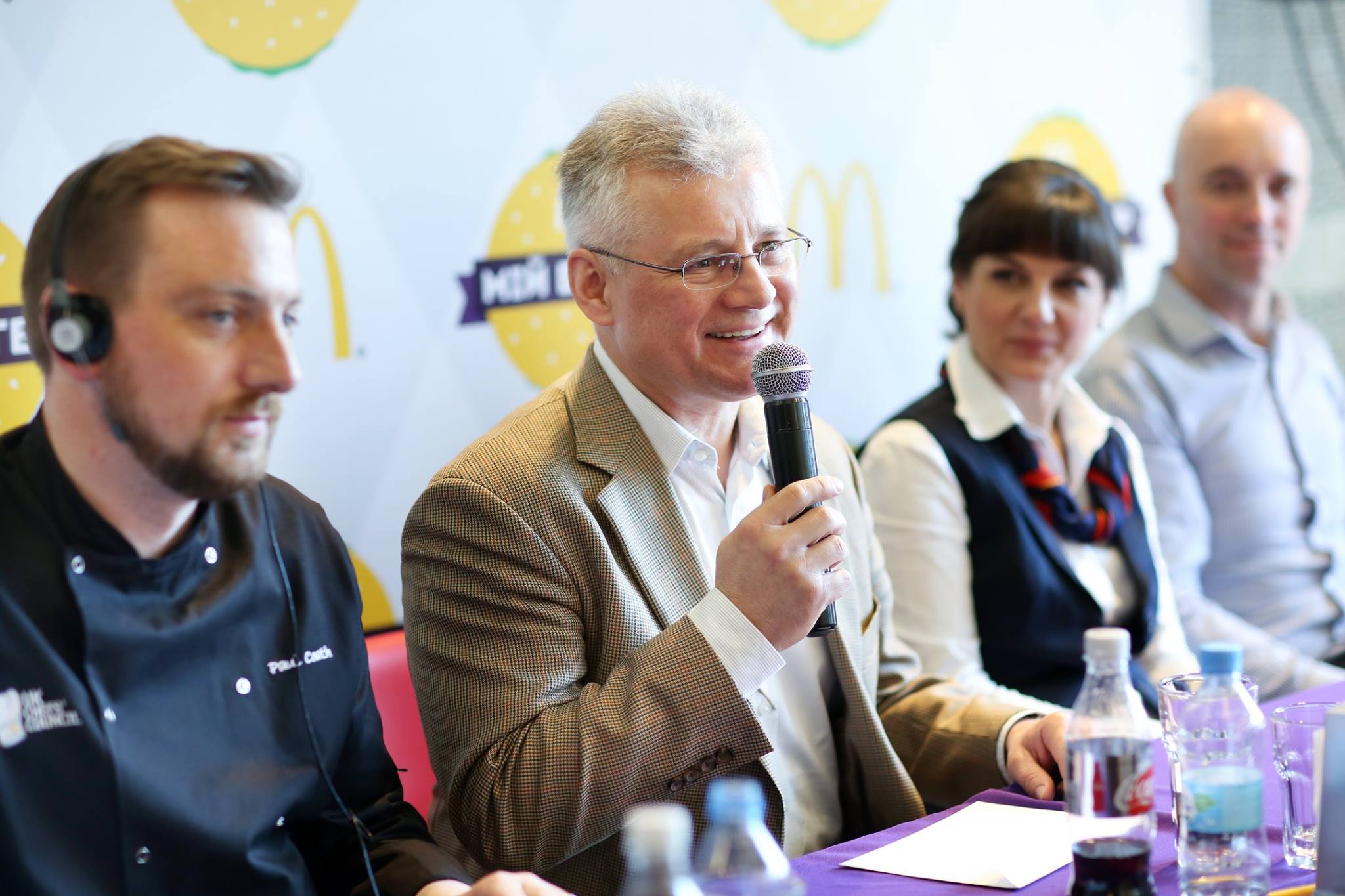
Break the news about the results of business performance of McDonald's in Ukraine in 2017
We continue opening of new restaurants in Ukraine. In August this year, a new restaurant started in the shopping center of Lavina Mall. It is one of four restaurants in Kyiv and over the country, which offers an opportunity to make orders via self-service terminals. On average, some 11% of the restaurant visitors use the terminals where they are put in service. We will place touch interface ordering terminals in other restaurants this year and the next too. In Poland, such self-service terminals already exist in almost all restaurants, for example. And I, for one, even told my colleagues from the Polish office to add the Ukrainian language to the set list of menu. After all, they have many Ukrainian employees there, as well as a large number of Ukrainians among visitors. They promised to work on this (laughs). Such an element of customer service in McDonald's is a part of one of the major corporate directions of the company, which is run under the general name of digital. In some restaurants of Europe, we have introduced a still another initiative related to the self-service terminals: when McDonald's employee brings food and drinks to the table ordered via entry terminal.
In Warsaw, there is a McDonald's without cash desks. Recently, we had to place order in a sort of kiosk there, and wait for the ordered meals to show up. At the same time, it was not completely clear where to wait for the order to come into view. It was quite an interesting experience. Can we expect the opening of such a restaurant in Ukraine?
This is an experimental restaurant. The orders placed via terminals make 96-98% there. In fact, there are cash desks there, but they are built into the counter, so as not to attract attention. If visitors do not know how to use the terminal, employees help. We are also moving towards such technologies, and we will be providing with more opportunities to place orders through terminals in our restaurants. Next year, we want at least to double the number of restaurants with terminals, and not in Kyiv only. In the long term, self-service terminals will be in an every restaurant. This innovation will be introduced simultaneously with the renovation works of a restaurant, and possibly along with the expansion of the area.
McDonald's pursues quite a restrained policy in Ukraine. Why? For example, there are already almost 400 McDonald's restaurants in Poland. Ukraine is a bigger country, but here are only 80 restaurants.
For this year, we had planned to open four new restaurants in Ukraine. Two of which has already been opened: One located in the mentioned shopping and entertainment center Lavina Mall. The second recently started on 26a, Obolonsky Avenue, near Mins’ka metro station in Kyiv. Next to it, there was McDonald's which we closed after 18 years of operations due to the opening of that new restaurant.
What was the reason for such a decision?
Near the restaurant, they had started a construction of a large residential complex Obolon Residences and we reached an agreement with the developer to move the restaurant. It was a complex procedure from a legal and technical point of view, but we have managed it quite friendly.
Two more restaurants will be opened in the existing shopping centers: in the shopping center Raion in Troeschyna located on 4 Mykola Lavrukhina str., and in City Mall in the city of Zaporizhzhya on 1b, Zaporizhzhya street. In the latter, the repair works has already been started too.
Also, one restaurant is now in the process of major restructuring by increasing the area from 290 to 405 square meters located at Naukova street in Kharkiv. We plan to open it before the end of the year.
In Kharkiv, we have already expanded one restaurant near the central station from 307 to 469 square meters this year. We also made redesign of McDonald's in Central Department Store in the city of Dnipro.
By the end of the year, we plan to complete the process of restructuring a restaurant on 116a, Dobrovolsky Avenue in Odessa. Another redesign was completed at McDonald's located on Shevchenko Avenue, 2b in Odessa this summer. In total, there will be five of such expanding and redesign works completed until the end of the year. Next year, we will continue in this direction too.
Also, one restaurant is now in the process of major restructuring with an increase in area from 290 to 405 square meters at Naukova street in Kharkiv. We plan to open it before the end of the year too.
In Kharkiv this year, we have already expanded one restaurant near the central station from 307 to 469 square meters. We also carried out redesign works of McDonald's located in the Central Department Store in the city of Dnipro.
Until the end of the year, we plan to complete the process of restructuring the restaurant on 116a, Dobrovolsky Avenue in Odessa. Another redesign in Odessa was completed on 2b, Shevchenko Avenue this summer. In total, there will be five in number of such a sort of expanding and redesigns by the end of the year. Next year, we will continue this process too.
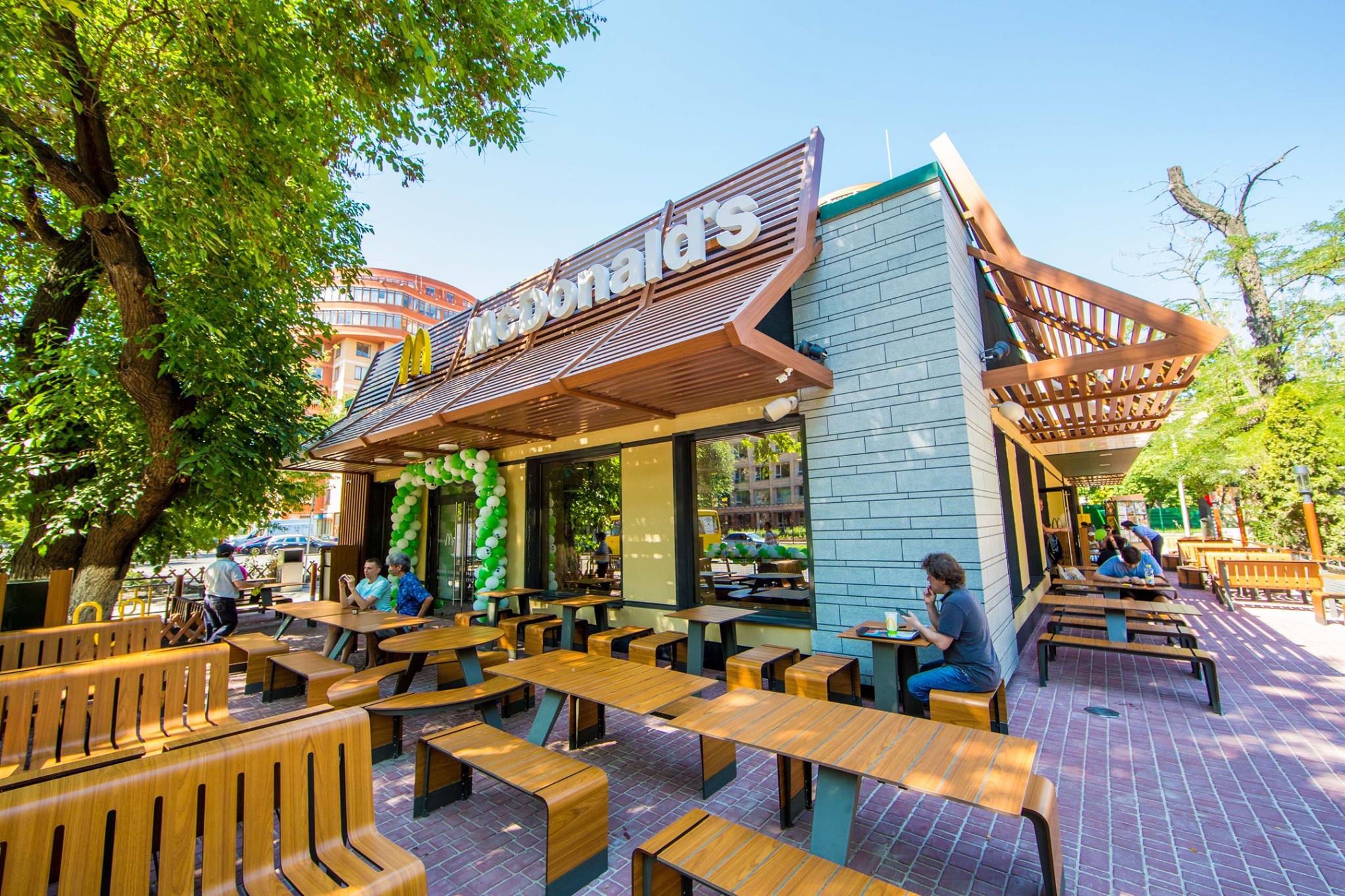
How many new McDonald's restaurants will start in 2018?
We plan four new restaurants and the same number of renovation works for 2018. In the coming years, the priority cities for us are Kyiv, Odessa, and Lviv. But, I would like to return to the question of McDonald's development policy in Ukraine. The most saturated market in Europe is Austria with 200 McDonald’s restaurants and only 8mln citizens. That is, one restaurant for 40 thousand people. Why such a difference? First of all, the most important thing is the economic welfare of the population. There is a great interdependence between the purchasing power and business success, and McDonald's is no exception to it. The second is tourism. For example in Malta, tourists are very helpful in business development. The third is transit through the country, in this respect Austria wins, and transit contributes to McDonald's success in Poland too.
And yet, the most important of all three factors is how much money remains for the given population after payments for all basic needs.
How often a family can afford to go somewhere for vacation, or for a weekend. A client who is on the move is much more valuable in business terms than the one who sits at home. According to the Big Mac index which the Economist calculates each year, Ukraine has come to the last spot in terms of the dollar nominated price for Big Mac. In the meantime, much of an investment, for example, into decor, furniture cost almost the same in all countries. That is, to build a restaurant cost the same everywhere. However, the payback period is different given the prices for food in restaurants. Colleagues in Poland enter and successfully work in small towns with a population of 20-40 thousand even now. In Ukraine, such towns are not yet to be considered.
And yet, the restaurant business has been developing in Ukraine in recent times. There was an opening after opening in Kyiv this year. Many believe that the only thing from leisure Ukrainians can afford is delicious food. Worth noting, that these were Ukrainian networks while foreign fast food brands has been more restrained in their development plans. Why is it so?
McDonald’s grasps 11% share of the market of food sales consumed outside home, where people come in to eat or make a light meal. Our market share does not reduce. We keep this position by opening new restaurants and by increasing the number of visitors into existing restaurants. The increase in attending made 5 percentage points over the past 12 months.
Does your company consider a possibility to develop business in Ukraine via franchising? Almost in all countries including our neighbours, McDonald's develops by selling franchises. Why not in Ukraine?
This is a corporate decision that directly depends on the peculiarities of the local market. Meanwhile we would rather do business in Ukraine directly as a 100%-daughter company of McDonald's corporation, and we will continue to work in this format. We also have a partnership program, that is, in many cities we open restaurants in cooperation with partners in real estate business. This is not the management of restaurants, but the construction of a restaurant and cooperation with a partner where we rent space. There are different options here, it can be a ready-made room, especially in shopping centers, or a restaurant built from the ground up for McDonald's.
Can you please tell us a few words about your work with suppliers? Is it true that McDonald's strategy is to maximize a number of local suppliers? What is the share of Ukrainian products here?
Such a strategy has been introduced in the corporation many years ago. In the USA, of course, there is a large market and almost all suppliers are local. With an exception of the toys for Happy Meal which are produced in China or Vietnam.
When McDonald's came to Europe in the early 1970s, it was necessary to find local suppliers. After launching of a process for facilitating trade within the EU, search for local suppliers has slowed slightly, but cooperation with local partners is now strategically important. In all markets, McDonald's has some share of imports. But the share of local suppliers stands at 70-80%. In small markets, of course, this share may be smaller. We have about 70% and this is a large number for a relatively small market here. Our main partners are OSI Food Solutions (Koziatyn Meat Processing Plant), which supplies us with steaks from Ukrainian meat. There is a small share of Lithuanian and Polish meat, but this is due to the peculiarities of our recipes. In the city of Dnipro, there is a bakery Bimbo Quick Service Restaurants (formerly East Balt Bakeries) that makes buns. They have recently been bought out by the world player Grupo Bimbo. Belotserkivsky Dairy Plant supplies us with dairy mixtures for desserts, Lustdorf provides with milk, Chumak - ketchups, sauces and pickled cucumbers, Agrana - fruit fillers, Coca-Cola supplies syrups for drinks, Ovostar - eggs, and Shantyl’ company makes muffins and cakes for children's birthdays. Salads are supplied for us by Fino Verde, a Ukrainian company with Spanish investments. They work all year-round and it is always an imported salad in winter though, which is cut and dressed here. But in summer, lettuce leaves are grown in Ukraine. There is also a number of not such sort of large suppliers. Ukrainian partners provide not only food products, but also, packaging, decor elements for our restaurants, for example.
And we continue to work on increasing the share of Ukrainian suppliers.
Are Ukrainian suppliers ready to launching production lines in order to establish cooperation with McDonald’s?
Establishing new production lines or capacities is a difficult path. It is necessary to conduct the feasibility study and evaluate a scope of the project. A manufacturer needs to always think whether it makes sense to launching a new line. We always give a long-term perspective for cooperation. Our task is not to look for suppliers that are enthusiastic because later it may turn out that they show up not ready for a stable and responsible work. We usually work with companies that have a good reputation, certified production capacities and significant production volumes. And still there are examples of successful start-up of production lines. For example, Ovostar was the first company to install special equipment for washing and disinfecting eggs, as part of a long-term partnership with McDonald's in Ukraine.
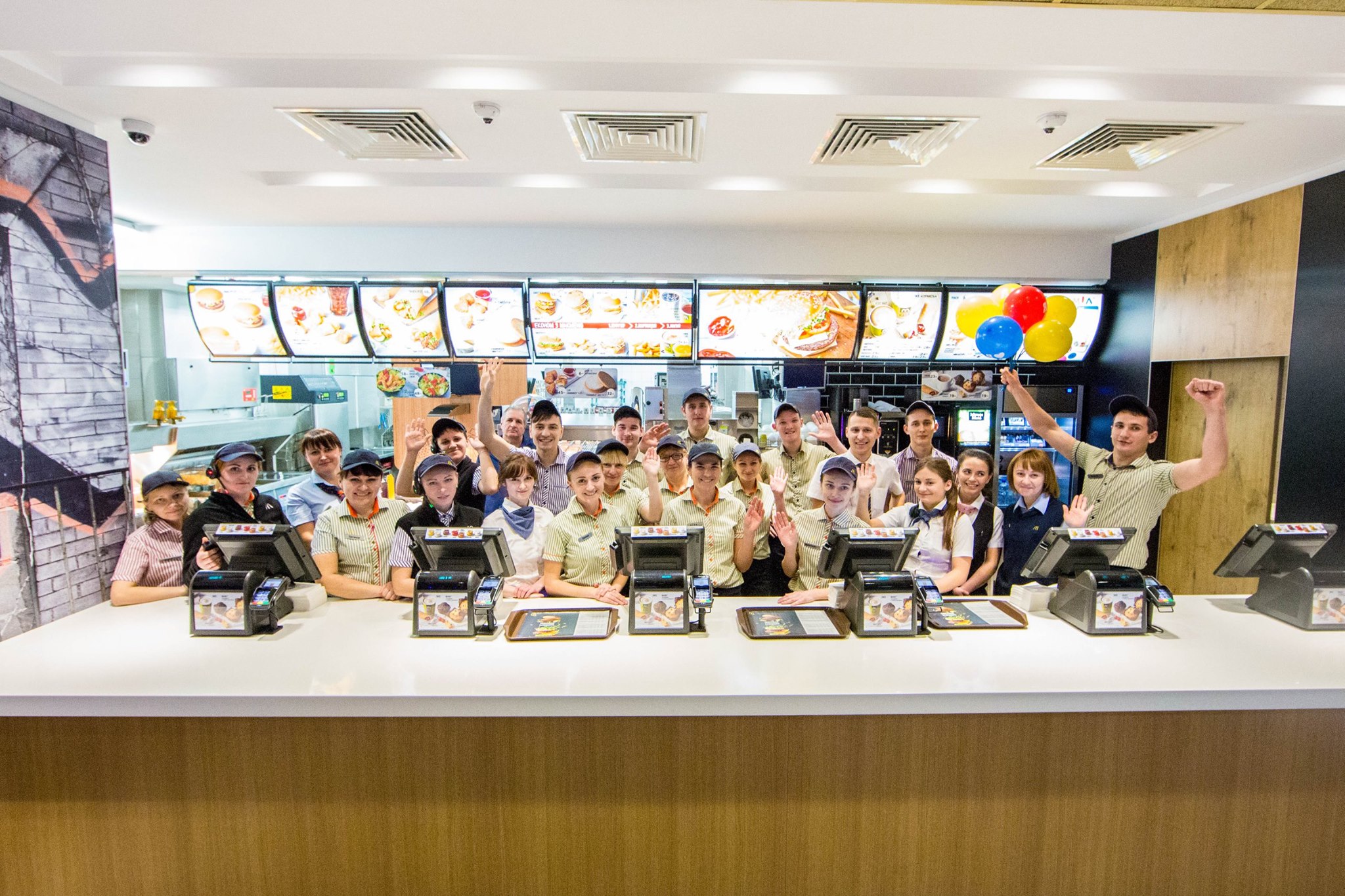
Can McDonald's become a financial partner for the purchase of new lines for the production of certain product categories?
No. All our suppliers work without our investments. It is always legally and financially independent enterprises. This is the philosophy that came since the company foundation in 1955. The founder of McDonald's decided to avoid internal competition of business operations. Otherwise, he would face the question of who to provide support first for an owner of the franchise or for the supplier? We should not have conflict of interests.
In what way do you look for your suppliers? by carrying tenders?
If this is a product for which there are many competitors on the market, then we invite for a tender. But, at the same time, a price for goods is not our major criteria. First of all, we look at quality.
How long does it take for your corporation to certify the production capacity of food manufacturers?
We do not conduct certification. We have an internal system for quality control and product safety though. This system includes all international standards recognized by the GFSI ("Global Food Safety Initiative"): FSSC 22000 (Food Safety Certification 22000), International Food Standard (IFS) and BRC Global Standard for Food Safety. They are based on the principles of HACCP. The independent auditing company chosen by us conducts audits at the enterprises for compliance with a standard that has been implemented there. In addition, McDonald's sets a number of requirements that are not part of any of the listed standards and are specific requirements of our company. For example, there is conformity of the product to specifications of McDonald's etc.
Before starting cooperation, we conduct an audit of the enterprise to identify any inconsistencies and give the manufacturer time to implement certain procedures and confirm their effectiveness in production. If the enterprise fully meets the McDonald's standards and the manufacturer is ready to be confirming them annually, then we are happy to see such a supplier for our system.
The most valuable element that we manage as a subsidiary of McDonald's is the brand itself. The brand has certain requirements, especially if it concerns food products. Quality is our priority, and we are interested in maintaining it at a high level. Caring for a brand is of concern for guests too.
Who conducts audits of production sites for McDonald's?
We cooperate with several auditing companies, like SGS, SAI Global, Bureau Veritas, NSF International, etc. McDonald's signed contracts with them at the global level. Our system has its procedure for approving independent auditing companies. In fact, there are no more than 10 of such auditing companies. The manufacturing company chooses an audit company independently to confirm the compliance of production with our requirements.
Is there a company among the Ukrainian suppliers of McDonald's that can export their products to your restaurants in other countries?
Often the problem is in the distances and costs of the logistics. The fact that Ukraine is not a member of the EU does not help either, because there are tariffs on a number of products.
Ukrainian suppliers supply their products to Georgia, Moldova, and Azerbaijan. For example, OSI Food Solutions delivers steaks to Georgia and Moldova, Chumak supplies products ─ ketchup, mayonnaise, cheese sauce, and pickled cucumbers ─ to McDonald's in Azerbaijan and Georgia, Shantyl’ exports cakes to our restaurants in Moldova. It is difficult for Ukrainian suppliers to enter large markets because after suspension of deliveries to Russia only the EU countries remained and the competition is quite high there. Also expensive logistics adds to the value of Ukrainian products.
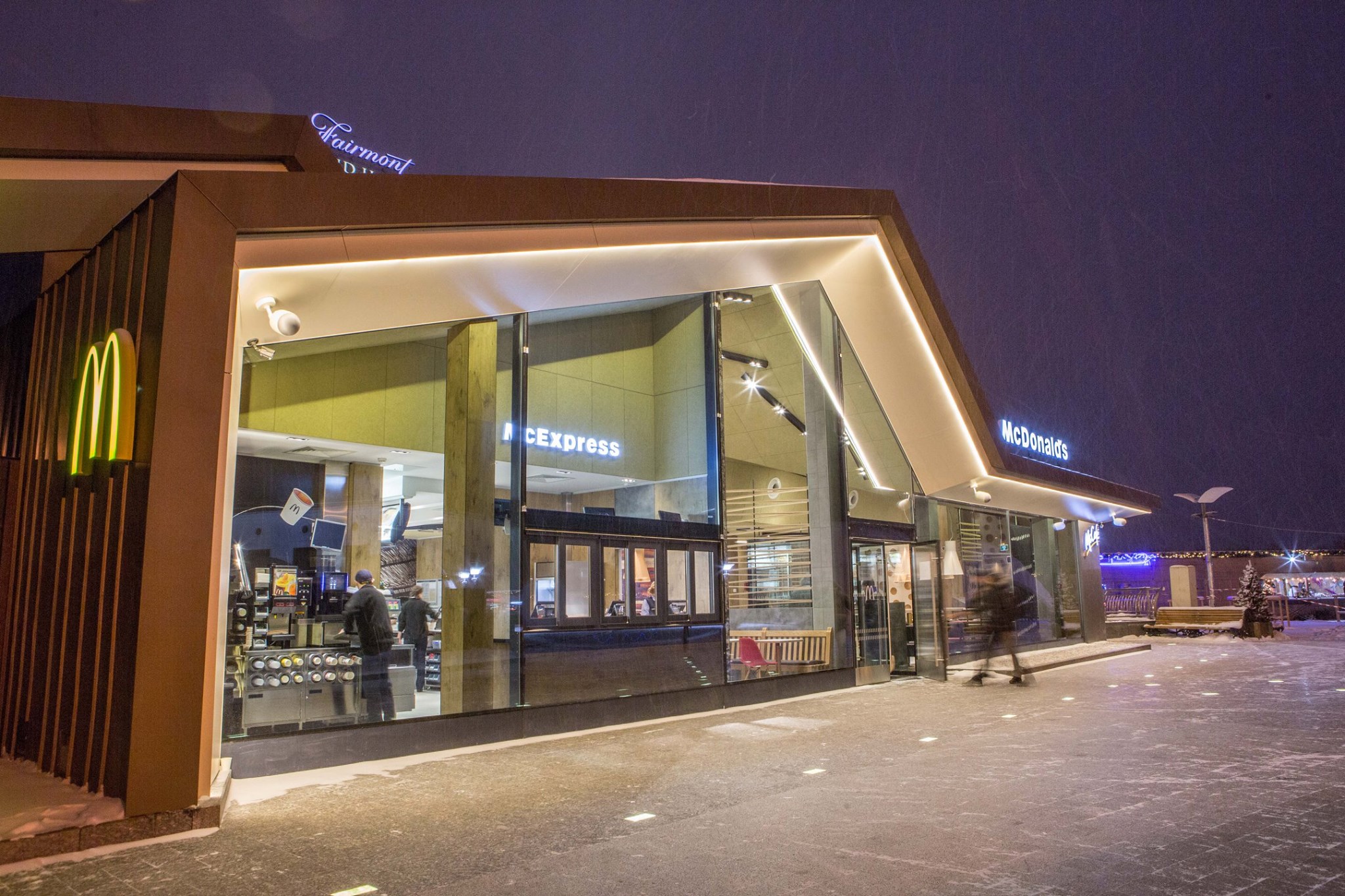
What are the key selection criteria for locations to launching a new restaurant? Which restaurants show the highest attendance rates in Ukraine?
Kyiv is a leading city by number of restaurants because it is the largest city in Ukraine. If to take the average annual sales, it's not yet a fact that Kyiv restaurants will be in the highest spots. The last new city for us in the regions where we opened the first restaurant was Kherson. It was in 2013. In 2014-2015 when the crisis unveiled, the work of the company significantly reflected the devaluation of the hryvnia. At the same time, we did not stop the development of the company even during this period. In 2014, we opened four new restaurants in the cities where we had been already present. But this does not mean that we do not consider entering new cities. When entering a new city where there are no McDonald's restaurants, it is important for us to obtain the right place for location. The process of picking up location takes a long time, considering the fact that it is necessary to arrange all the deliveries of products to these cities.
How the delivery process of goods is arranged to your restaurants? Do you have your own logistics centers?
We have a partner company Xavi that manages logistics. McDonald's deals with it in several countries. The task of this company is to ensure high-quality provision of logistics services. Some McDonald's restaurants require deliveries five to six times a week. If something goes wrong in the delivery mechanism, the restaurants will stop working which is unacceptable for us.
Xavi has five logistics centers in Ukraine, as the country's territory is large. These warehouses get all the goods and deliver them to restaurants on special purpose delivery cars. Together with Xavi, we have practically implemented a system of bar-coding for products that help to bring the delivery process to a more advanced and modern level minimizing possibility of errors.
What spot does Ukraine have in ranking in the total sales structure of McDonald's?
Not the first, but not the last, you can be sure. At the end of 2017, we will have 83 restaurants in Ukraine. We have a large number of visitors to our restaurants in Ukraine. It helps to keep up with a fairly good level of sales. It is clear that in comparison to such markets as the USA, where there are more than 14 thousand restaurants, or Canada, Australia, Germany, Britain and France, where the number of restaurants exceeds 1 thousand, Ukraine belongs to a completely different category list. But if to compare with the countries of Eastern Europe, then we are a serious player.
Who finances the work of McDonald's in Ukraine? Is it a parent company or do you attract loans in banks?
It depends on a specific situation in a particular country. If at some stage there is a need for funds, the parent company can allocate them for support, for example, in the event of a market growth prospect or a need to expand. But we can also attract loans on our own. Now, McDonald's Ukraine is developing at its own expense.
For us, the main task is to successfully open new restaurants. As we have already said, the number of restaurants in Ukraine is quite small compared to Central Europe. We would like to grow and for this we must show up good financial performance and deliver the results of work of the new restaurants. We have plans for the openings in 2018, but we have also strategic plans for 2019 and 2020.
Have you ever paid dividends to the parent company?
Yes, it happened.
How does McDonald's set prices on its products?
The goal of any business is to earn money. Of course, we take into account the purchasing power of our visitors when putting a price. But there is also an objective reality for doing business. We are very dependent on the cost of ingredients from our suppliers. I'm talking about the cost of meat, milk, and prices for grains on world markets. Recently, there has been a growing demand for beef and milk in the world. Asian countries, for example, have fueled the demand for vegetable oils. These factors affect prices of our ingredients that are reflected in the prices of products in our restaurants. The second significant factor that pushes up prices of products is the salary of employees. This year, we increased salaries for our employees by 32%. Next year, we also plan to increase the salaries of our workers.
Are you optimistic about the prospects for Ukraine?
Now, Ukraine needs investments. The more the existing players can invest into their development, the better it will be.
At the same time, take into account that Ukraine is not the only market for investment in the world. There are plenty of such markets of the kind. The countries of Central Europe are ahead as many international players have already entered there with their experience of conducting business in other markets. Ukraine faces a very difficult task to convince the management of multinational companies in London or New York to investing additional funds. We must do everything possible to attract this sort of capital, especially into new production facilities for quality products. In the meantime, the investments go to the neighboring countries. And the saddest thing is that they also attract labor force from Ukraine. Therefore, the issue of improving the investment climate in Ukraine is of much concern.


